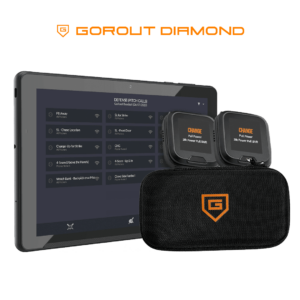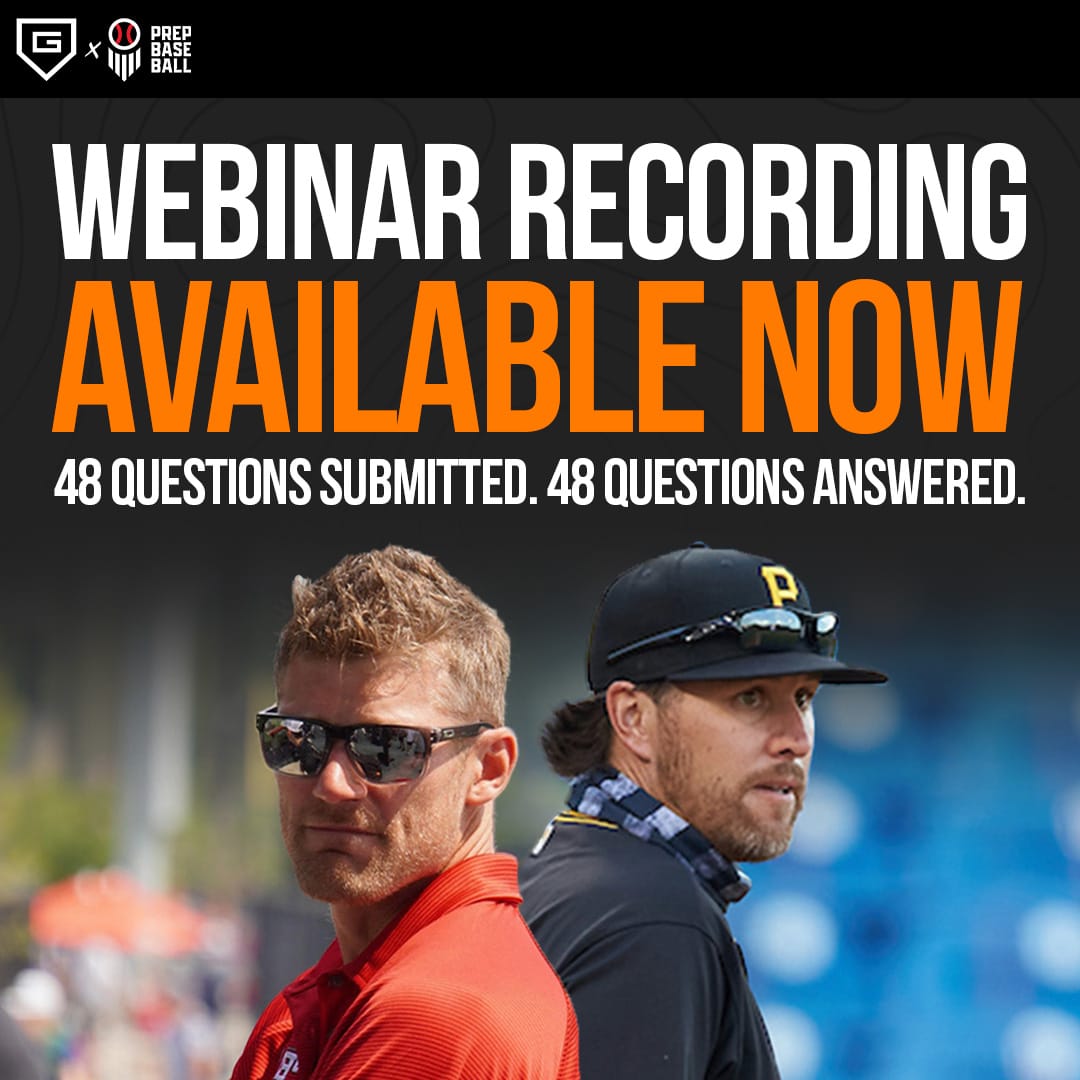How to Start a Travel Baseball Team: A Step-by-Step Guide for 2025
Reading Time: 13 minutes
Reading Time: 13 minutes
Starting a travel baseball team allows you to create the baseball experience you want while giving young athletes more competitive opportunities.
Exposure to college and professional scouts is a major motivation for many families, as it can impact the future of young athletes in baseball.
If you want to know how to start a travel baseball team in 2025, there are a few things to be aware of. You’ll need to:
- Define your team’s purpose
- Register for league affiliation
- Build your roster
- Secure a coaching staff, and
- Handle the financial aspects of running a competitive program
If you’re starting from scratch, this article will break the process into practical steps to make it more manageable for you.
You’ll learn how to provide valuable experiences for young players and improve their skills while building lasting friendships and memories on the diamond.
Understanding Travel Baseball

Before you start your team, it’s important to understand what youth travel baseball is and how it fits into the youth baseball landscape. Travel baseball offers unique opportunities and challenges vastly different from recreational leagues.
What is travel baseball?
Travel baseball is competitive youth baseball where teams travel to play in tournaments and games against other skilled teams. Unlike recreational leagues, travel baseball teams are formed based on player skill level, not geographic boundaries.
Little League is more recreational and less expensive, focusing on community-based teams and a less competitive environment than travel baseball. Little League is great for families looking for a lower-cost, less demanding baseball experience.
Travel baseball players practice more and play more games throughout the season. Most teams play weekend tournaments that may require overnight stays in other cities or states.
The commitment level is higher – seasons often go beyond the traditional spring/summer months into fall. Kids who join travel baseball are looking for:
- More advanced coaching
- Higher level of competition
- More games per season
- Development beyond recreational play
How travel baseball differs from recreational leagues
Travel baseball and recreational leagues serve different purposes in the youth baseball ecosystem. Here’s how they compare:
| Aspect | Travel Baseball | Recreational Leagues |
| Competition | Highly competitive | Emphasis on fun and learning |
| Selection | Tryout-based, selective | Open to all skill levels |
| Cost | $1,000-$5,000+ annually | $100-$300 per season |
| Travel | Regular travel for games/tournaments | Mostly local games |
| Time commitment | 3-5 days per week | 1-3 days per week |
| Season length | Often year-round | Typically 8-12 weeks |
Travel baseball requires more time, money, and energy from players and parents who sometimes need to handle transportation, tournament logistics, and possibly team duties.
The current state of travel baseball
Travel baseball has evolved with more specialized opportunities and technology integration. Modern travel programs now offer:
- Pitch tracking systems
- Advanced team communication systems
- Video analysis tools
- Data-driven development plans
It has become more structured with multi-tier divisions so teams can compete at the appropriate skill levels. Regional “super leagues” have created more organized competition between top programs.
Many travel organizations now have year-round facilities with indoor training options. Recruitment has intensified, with college coaches scouting players at younger ages than ever before.
Digital platforms now connect teams with tournaments, making scheduling and registration easier. Costs have gone up, but so have the quality of facilities and training methods available to players.
Benefits of travel baseball
- Skill development: Players get more hands-on coaching and practice time, which helps them level up their baseball skills quicker.
- Competition level: Competing against tougher teams pushes everyone to step up their game.
- Team bonding: The travel experience builds stronger friendships and teaches teamwork.
- Exposure: For talented players, travel baseball provides visibility to high school and college coaches. Exposure to professional scouts at higher-level events is crucial for those who want to take their baseball career to the next level.
- Life skills: Players learn time management, commitment, and how to handle pressured situations.
Challenges of travel baseball
- Financial burden: The cost of travel baseball can strain family budgets with fees, equipment, travel, and lodging.
- Time commitment: Baseball schedules often consume weekends and holidays, limiting family time.
- Burnout risk: The intensity can lead to physical and mental exhaustion for young players.
- Parent pressure: The competitive environment can bring out unhealthy expectations from parents.
- Balance issues: Players may miss other activities or struggle to balance school and baseball.
Planning Your Travel Baseball Team
Starting a travel baseball team requires planning and a clear vision. Before you recruit players and schedule games, you need to lay the foundation for your team’s success.
Define your team’s purpose and mission:
- What values will your team represent?
- Are you focused on player development or competitive success?
- How will you balance fun and skill-building?
- What sets your team apart from others in the area?
Set clear program goals:
- Short-term goals (first-season expectations)
- Long-term player development targets
- Competitive achievements you want to reach
- Community involvement objectives
Choose your team’s competitive level:
- What age groups you’ll serve (8U, 10U, 12U, etc.)
- What skill level your team will target
- Research league affiliations that match your competitive goals
- Consider how far you’re willing to travel for tournaments
Establish your organizational structure:
- Decide who will coach the team
- Define who will handle administrative duties
- Determine how you will communicate with parents and players
- Develop policies for playing time and team rules
Build a sustainable business plan:
- Calculate startup costs and seasonal expenses
- Determine player fees and budget planning
- Find sponsorship opportunities
- Plan fundraising activities to support the team
Remember, the most successful travel teams have a clear identity and purpose. Your planning stage is crucial to building a strong foundation for your baseball team to thrive for years to come.
Legal And Administrative Setup For Travel Baseball Teams

Starting a travel baseball team involves more than gathering players and coaches—it requires establishing a proper legal and administrative foundation.
First, choose a business structure – LLC for liability protection or non-profit for tax benefits. Next, register with league affiliations like USSSA, AAU, or local organizations to gain legitimacy and tournament access.
Secure insurance coverage, including general liability, accident medical, and directors and officers (D&O) insurance. This protects the organization, players, and leadership from potential risks.
Make a separate bank account to handle expenses such as:
- Registration fees
- Tournament costs
- Equipment purchases
- Fundraising income
Create clear documents. Have parents sign detailed waivers and player agreements that outline attendance expectations, financial commitments, code of conduct, and media release permissions to prevent misunderstandings and legally protect your organization.
Building Your Travel Baseball Team’s Coaching Staff

Finding the right coaches is key to your travel baseball team’s success.
Start by recruiting a head coach with vast knowledge, experience with competitive baseball, leadership skills, and passion for developing young players.
Look for assistant coaches who are patient, communicative, committed to player development and have expertise in pitching, hitting or fielding.
Hire a team manager for logistics, scheduling, and equipment supervision.
Background checks are non-negotiable. Professional coaches must have the proper certifications – first aid, CPR, and coaching credentials – if required by your league.
Invest in coaching education and develop a unified philosophy addressing playing time, skill development, parent communication, discipline, and team rules.
Great travel baseball coaches set the tone for your entire program. Choose people who will be positive role models and care about your players’ development on and off the field.
Travel Baseball Team Player Recruitment And Tryouts
Finding good players is key to your new travel baseball team. Recruitment requires planning, organization, and clear communication to build a competitive roster.
Set a date for tryouts to accommodate local youth schedules, offering multiple sessions to let them show their skills.
Determine the skills and traits you seek using evaluation forms that rate hitting, fielding, throwing, baserunning, baseball IQ, attitude, and coachability.
Promote tryouts through social media, local recreational leagues, and referrals, and streamline sign-ups with an online registration form.
During tryouts, have multiple coaches evaluate each player for balanced assessments and unbiased selection. Use numbered pinnies or jerseys to identify players.
Communicate clearly with families about the process, providing prompt feedback and advice for those not selected while building a team that works well together.
Travel Baseball Team Financial Planning And Budgeting
Starting a travel baseball team requires careful financial planning. Create a budget spreadsheet to track expenses and income.
Estimate startup costs for equipment, uniforms, insurance, league and travel baseball tournaments, practice facility rentals, and coaching stipends.
Player fees will be the primary income source; clarify what these fees cover, such as uniforms, tournament entry, and travel expenses.
A comprehensive annual budget is a must. Track these categories:
- Equipment: Balls, training aids, team gear
- Uniforms: Jerseys, pants, hats, customization
- Tournament fees: $300-$800 per tournament
- Travel expenses: Hotel rooms, transportation, meals
- Insurance: Team and liability coverage
- Field rentals: Practice and home game venues
Fundraising through sponsorships, merchandise, or tournaments can lower player fees. Maintain financial transparency with parents and adjust your plan for team size, competition level, geographic location, and unexpected expenses.
Equip Your Team For Success With GoRout Diamond

GoRout Diamond is an advanced electronic pitch-calling system for baseball and softball that eliminates sign-stealing and miscommunication, improving your team’s results on the field.
It is manufactured in the USA in partnership with Connect America (Pennsylvania) and KORE Wireless (Georgia).

You can create your playbook through the web app and send pitch calls directly to players’ baseball communication devices during practice and games using the mobile app.

Your players will wear rugged wristbands that display your pitch calls in real-time, clearly visible regardless of the weather conditions.

Key features:
- One-touch team communication for immediate on-field interactions
- Customizable plays and baseball signals that match teams’ strategies
- Weather-resistant devices for any environment
- Fully encrypted transmissions for private and secure communication
- AI-powered analytics for performance insights
- 12+ hour battery life on a single charge
No WiFi is required. GoRout Diamond works on cellular technology, so it’s usable on any baseball field.
Why coaches love GoRout Diamond:
- Speeds up the game
- Prevents sign-stealing from opponents
- Works in all weather conditions
- Provides performance analytics
- Helps younger players develop faster
Read testimonials and case studies to learn more.
This baseball pitch-calling system comes with a 100% warranty, so you don’t have to worry about damage during gameplay.
Whether starting with coach-to-player communication systems or equipping your entire team, GoRout’s pitch-calling devices fit your travel team’s budget and needs.
Get a quote or visit the online shop.
Finding Practice Spaces For Your Travel Baseball Team
Finding the right places to practice is crucial for your new travel baseball team. You’ll need reliable access to fields where players can develop their skills and prepare for travel baseball games.
Start by contacting local schools, community parks and recreation departments, private facilities, and baseball organizations to rent or share fields. Prepare a professional proposal highlighting respect for the property and community benefits.
Secure indoor facilities—batting cages, turf areas, pitching tunnels, and strength and conditioning spaces—for year-round practice, regardless of weather.
Budget for essential equipment like portable pitching machines and protective gear. Organize practice spaces with stations for specific skills and manage schedules and parent communication using digital tools.
Always leave facilities better than you found them to build long-term trust and ensure continued access to quality practice spaces.
Planning Tournaments For Travel Baseball Teams
Planning a tournament schedule is one of the most enjoyable parts of running a travel baseball team. It requires a balance of competition level, travel distance, and player development goals.
Research tournaments that match your team’s skills through national organizations, local leagues, or networking with other coaches.
Consider factors such as challenging yet competitive play, mixing local and distant “destination” events, avoiding back-to-back tournaments to prevent burnout, and format variety. Also factor in entry fees, travel, and lodging costs.
Most travel baseball games are weekend tournaments. Teams play 2-4 games in pool play, then potentially advance to championship brackets.
When hosting tournaments, book venues early and create detailed timetables to maximize field use and allow teams to rest between games.
Communicate plans to families in advance to help them arrange work schedules and book hotels.
Building Travel Baseball Team Culture And Identity
Team identity starts with branding and uniforms. Pick team colors, a logo, and quality uniforms that players can wear with pride.
Create a website to show your team’s achievements. It can help with baseball recruiting and community engagement.
Establish clear rules and expectations by creating a written code of conduct covering attendance, sportsmanship, and behavior; have players and parents sign it.
Build bonds through team traditions like pre-game rituals, team meals, or post-game huddles.
Set boundaries for parent involvement with guidelines for sideline behavior, communication with coaches, and respecting team decisions. Host a pre-season meeting to address concerns.
Focus on a positive, developmental environment that celebrates effort and progress. Invite respected alumni as guest coaches to reinforce your culture, emphasizing consistent growth over winning.
Travel Baseball Team Communication Strategies
Good communication is the foundation of a successful travel baseball team.
With clear systems like group chats, social media groups, and email lists, coaches, players, and parents know which channel to use for different messages.
Organize pre-season meetings to discuss schedules, fees, and volunteer needs and provide a parent handbook to set expectations.
Weekly updates make it easier for families to stay in the loop and plan for what’s coming up. Having a team website or social media account is a great way to share news, achievements, and post-tournament results.
Transparency in finances, player progress, and upcoming opportunities builds trust. Regular check-ins foster growth.
Address conflicts quickly and privately by listening carefully and focusing on solutions rather than blame.
Establish a process for managing concerns, such as waiting a day after games before raising issues with coaches. Consistent, clear communication builds teamwork on and off the field.
Player Development Frameworks For Your Travel Baseball Team
A player development framework should focus on helping each player improve while building team skills.
Begin by establishing age-appropriate goals, as what works for a nine-year-old differs from training for teenagers preparing for high school baseball.
- Create individual skill assessments for each player that identify strengths and areas for improvement
- Design practice plans that match your players’ physical and mental development stages
- Balance individual skill work with team concepts like situational play and game strategy
- Implement structured practice routines that include station work, game-like drills, and competition
- Use metrics and technology such as pitch tracking or video analysis to provide objective feedback
- Plan off-season development opportunities that keep players improving year-round
Younger groups should focus on fundamentals and fun, while older players can handle more complex concepts.
Track progress throughout the season with simple metrics for each player. It helps you show improvement and tweak your teaching methods as needed.
Building Partnerships For Your Travel Baseball Team
Creating strong partnerships with local businesses can help cover costs for equipment, travel, and tournaments.
Finding sponsors takes time and effort, but it’s worth it. Here’s how to build meaningful partnerships for your team.
Identify potential local sponsors:
- Look for businesses with connections to baseball or youth sports
- Target companies owned by parents or relatives of team members
- Research businesses that sponsor other local travel baseball organizations
- Consider approaching sports equipment stores, restaurants, and car dealerships
Create attractive sponsorship packages:
- Develop tiered options (Bronze, Silver, Gold) with different benefits
- Offer jersey logos, field banners, website recognition, and social media mentions
- Create a professional baseball sponsorship form outlining all options
- Include clear information about what sponsors receive for their investment
Approach businesses professionally:
- Prepare a short pitch about your team’s mission and needs
- Bring players in uniform when meeting potential sponsors
- Explain how supporting youth sports benefits their brand locally
- Be prepared to discuss how many families and baseball clubs you’ll reach
Fulfill sponsor obligations consistently:
- Send thank-you notes and regular updates on team achievements
- Tag sponsors in social media posts showing their logo/support
- Invite sponsors to games and special team events
- Track and share metrics on their brand exposure
Build long-term community relationships:
- Partner with high school programs for facilities or coaching exchanges
- Organize community service events with your sponsors
- Create annual appreciation events for all team supporters
- Keep communication open year-round, not just during fundraising
Measuring Success Beyond Wins
Remember that success isn’t just about the scoreboard when starting your travel baseball team. Its growth involves many other important factors that show real progress.
Here are key ways to measure your team’s success beyond winning games:
- Player development tracking: Create individual skill assessment cards to track each player’s progress in hitting, fielding, and pitching throughout the season. You can use simple rating scales (1-5) for specific skills.
- Personal growth metrics: Notice how players handle pressure, show leadership, and support teammates. These qualities are just as important as baseball career development.
- Feedback systems: Set up regular check-ins with players and parents to gather honest feedback. Anonymous surveys can help everyone share their thoughts openly.
- College baseball advancement: Keep records of players who receive more exposure to college scouts. This shows your program helps players advance to higher levels.
- Team retention rates: Track how many players return each season. High retention means your program offers many benefits that families value.
- Program growth: Monitor increasing tryout numbers and expanding team offerings. Growth indicates your reputation is building in the community.
A well-rounded approach to measuring success helps you create a program that develops great players. When families see value beyond just wins, they’ll recognize that travel baseball is worth more than trophies.
Common Challenges And Solutions For Travel Baseball Teams
Starting a travel baseball team is exciting, but there are some bumps in the road you might hit along the way. Here are the common challenges you’ll run into and practical tips to help you tackle them.
Managing team growth and sustainability:
- Build a strong foundation with clear team values and mission
- Create a development pipeline from younger age groups
- Budget for the season, including equipment, uniforms, and travel costs
Dealing with parent conflicts and expectations:
- Set expectations about playing time from day one
- Create a parent handbook for communication protocols
- Hold pre-season meetings to clarify goals and address concerns
Competing vs. developing:
- Development should come before winning at younger ages
- Rotate players through positions to build versatility
- Make practice plans that focus on fundamentals while being fun
Coaches and player burnout:
- Limit practice times based on age group
- Schedule breaks during the season
- Find volunteer coaches to share the load
Adapting to the changing baseball environment:
- Stay current on new training methods and technology
- Research local teams to understand competition level
- Consider joining a league that matches your team’s level
Time commitment is often underestimated in travel baseball. Players may practice 2-3 times weekly with games and weekend tournaments.
Finding the right balance with playing time can be tricky. You want to develop all players while putting a competitive team on the field.
Conclusion About Starting A Travel Baseball Team
Starting a travel baseball team takes planning and work, but it’s worth it. Your new team can give young athletes valuable skills and memories.
Begin by defining your team’s purpose and gathering committed coaches and volunteers. A strong basis is key to long-term success.
Create a realistic budget that covers all expenses, including equipment, uniforms and tournament fees. Be transparent with parents from the start.
Your team’s brand matters. Choose a name and logo that players will wear with pride. It helps build team identity and community recognition.
Promote your team through social media, local events, and word of mouth to attract talented players. Host organized tryouts to find the right mix of skills and attitudes.
Travel baseball is intense. It takes commitment from everyone involved. It’s necessary to outline expectations about practice times and travel plans.
It might feel challenging at times, but seeing your players improve and gain confidence is totally worth it. Your travel team can turn into a close community that makes a difference in these young players’ lives for years.
With proper planning and genuine love for the game, your travel team will be on a pathway to success.
FAQs About Travel Baseball Team
Can anyone start a travel baseball team?
Yes. Parents, players, or former professional coaches with baseball knowledge and organizational skills can start a travel team when they see a need in their community.
You’ll need to understand baseball fundamentals, have good communication skills, and be able to handle administrative tasks.
How much does it cost to run a travel ball team?
Travel teams that play baseball cost between $1,000-$3,000 per player per year. It includes uniforms, tournament fees, equipment, field rentals, and coaching expenses.
The total team budget varies based on how many tournaments you enter and how far you travel. Always create a budget before you start your team.
How do I build a travel ball team?
Building a strong team starts with holding tryouts to evaluate player skills. Look for:
- Strong fundamentals
- Good attitude and coach ability
- Supportive parents
- Commitment to practice schedule
Once you have your roster, set up communication with families.
How do I start a travel sports team?
To start your travel baseball team:
- Define your team’s purpose
- Register with a league or governing body
- Find coaches and players
- Name and logo of your team
- Find practice facilities
- Buy equipment and uniforms
- Register for tournaments
- Set up team policies
Start planning 3-6 months before your first season.







